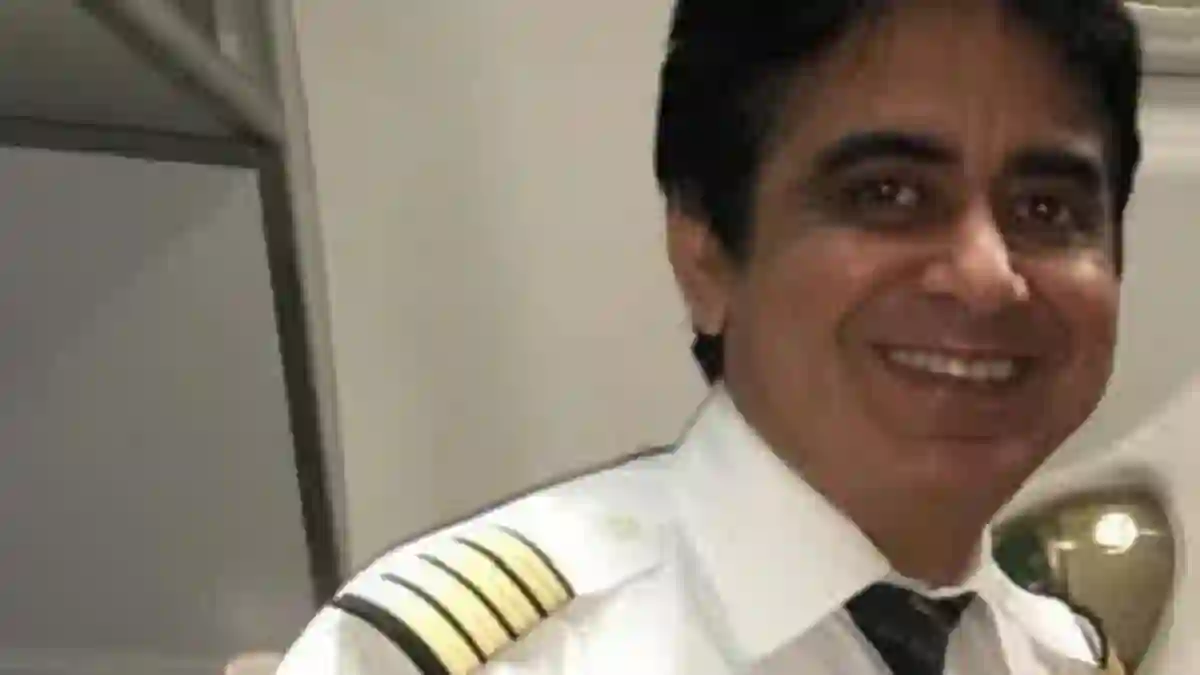In the world of aviation, there’s an unshakable trust we place in pilots to guide us safely through the clouds.
But what happens when the mental wellbeing of those at the controls is overlooked?
That’s the question surfacing in the wake of the devastating Air India Flight 171 crash, as investigators dig deeper into the personal life of the pilot at the helm.
A Catastrophic Crash Raises Red Flags
Captain Sumeet Sabharwal was flying a Boeing 787 Dreamliner when disaster struck shortly after takeoff from Ahmedabad.
The aircraft, tragically, plummeted into a nearby residential area on June 12, killing 241 of the 242 people on board.
Preliminary reports now show that switches controlling fuel flow to both engines were turned off just minutes into the flight — leading to a total loss of power.
What makes this detail more troubling is the recorded exchange in the cockpit.
One pilot reportedly asked the other why the fuel was cut.
The response? A denial — “I didn’t.” That cryptic moment has pushed investigators to look beyond mechanical failures and examine whether mental health may have played a role.
Focus Turns to the Pilot’s Mental State
Captain Sabharwal was no rookie — with over 15,000 flying hours, he was considered highly experienced.
But recent personal struggles are now coming to light.
He had reportedly taken bereavement leave to grieve the loss of his mother and may have been suffering from depression at the time of the crash.
While Air India’s CEO has cautioned against jumping to conclusions, an internal memo confirmed that the investigation is still ongoing and far from reaching any final judgment.
For now, India’s Aircraft Accident Investigation Bureau (AAIB) has confirmed that there were no technical faults and all routine maintenance had been properly performed.
The Silent Crisis in the Cockpit
Though still under investigation, this case echoes past aviation disasters where pilot mental health was a hidden danger.
In fact, pilot murder-suicides — though rare — would rank as the second highest cause of death on Western-built aircraft since 2012, if categorized separately, according to data compiled by Bloomberg.
The most infamous example remains the 2015 Germanwings tragedy.
Co-pilot Andreas Lubitz, battling severe mental illness, locked his captain out of the cockpit and deliberately crashed into a mountainside in France, killing all 150 people aboard.
Investigators later revealed Lubitz had been previously treated for depression, diagnosed with psychosis, and concealed medical notes declaring him unfit to fly.
A Global Issue That Still Needs Addressing
That crash alone prompted soul-searching within the aviation world — but experts say changes have been slow.
Aviation psychologist Marc Atherton recalled how the Germanwings incident made it “painfully obvious” that while airlines had solid systems to manage physical and operational risks, there was no consistent strategy for managing psychological risks in flight crews.
Surveys suggest that between 4% and 8% of pilots have thought about suicide — figures that mirror the general population.
Still, fear of losing their license stops many from being honest.
A 2022 study in the U.S. found more than half of pilots admitted to avoiding medical care out of fear they’d be grounded.
Doctors Can Clear Pilots — But Not Catch Everything
In India, aviation expert Captain Mohan Ranganathan said several pilots had spoken to him about Sabharwal’s struggles with mental health.
However, he added that if he was flying, “he must have been medically cleared” by company doctors.
The problem? Medical exams are periodic. If a pilot develops symptoms between checks and chooses not to report them — perhaps fearing career repercussions — there’s no system to catch it in time.
Can Screening Prevent Tragedies?
After Germanwings, some experts questioned whether preemptive screening for suicidal thoughts could prevent similar tragedies.
But others weren’t so sure. A U.S. panel concluded that screening alone wasn’t enough, and suggested changes to cockpit door design.
The issue, though, is tricky: stronger cockpit locks can stop hijackers, but they can also prevent crew members from regaining control during a crisis.
In 2013, a similar situation unfolded when a Mozambican Airlines pilot locked his co-pilot out and deliberately crashed the plane in Namibia, killing everyone on board.
Again, investigators cited deliberate action.
MH370 and Theories That Still Haunt
Then there’s the mysterious disappearance of Malaysia Airlines Flight MH370 in 2014.
With 239 people on board, the aircraft vanished en route to Beijing.
Years of search efforts found no conclusive wreckage.
But in 2020, former Australian PM Tony Abbott said senior Malaysian officials had long believed the crash was an intentional act by pilot Zaharie Ahmad Shah — a claim Zaharie’s family has firmly denied.
Industry Voices Call for Culture Change
People like Captain Dave Fielding, who leads the International Peer Assist Aviation Coalition (IPAAC), are among those calling for a serious overhaul.
In his view, pilot mental health is “the new front” in flight safety — and not just for pilots, but for all aviation personnel.
The Royal Aeronautical Society echoed similar concerns in a recent global report, saying that although efforts to support staff are increasing, prevention remains lacking.
Many experts now believe the industry still doesn’t offer enough psychological support for its people — even after several wake-up calls.
Peer Support May Be the Key
IPAAC has championed peer support programs as one of the best ways to address the issue head-on.
These systems allow pilots and staff to talk openly and confidentially with trained colleagues who understand the pressure of the job — without fear of losing their career.
In a statement to MailOnline, IPAAC emphasized: “The mental health and wellbeing of all safety-critical personnel in aviation is a safety issue.
The role of Peer Support Programmes is more critical than ever.”
A Final Note
If you or someone you know is struggling, help is available.
You can contact the Samaritans completely anonymously, for free, from any UK phone at 116 123, or visit samaritans.org.



